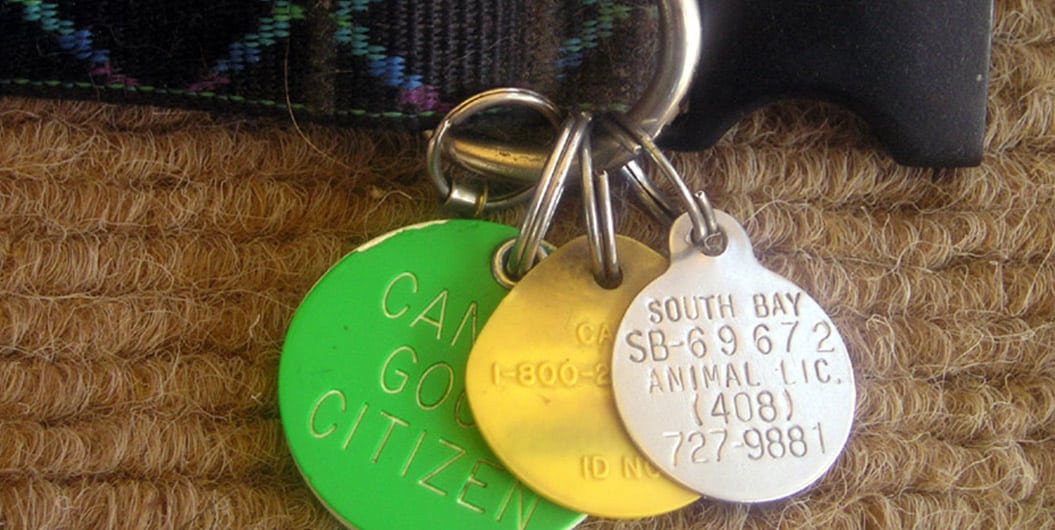What Is a Dog License?

A dog license allows an owner to prove that a dog is his. Most places require a dog to be licensed, and require owners to meet certain criteria before a license can be obtained. A dog license protects the dog, its owner and the population. The price of a license can vary depending on the area and circumstances of the owner.
A dog license is a number that identifies both the dog and its owner. The owner is issued a certificate with the number. A dog tag is provided for the dog’s collar that has the license number. In many areas a license has to be renewed every year, though some areas offer licenses that are good for the lifetime of the dog. For owners who have many dogs, a kennel license may be available that will cover all the dogs.
Getting a pet license provides protection for any dog that gets lost. Animal control officers can trace the number on the tag and contact the owner to pick up his dog. If the owner is out of town, the license number may mean the difference between an animal being held for several days in an animal shelter and being euthanized, which is common practice in many shelters when strays are brought in.

Most areas require an owner to license his dog. City governments provide licenses for dogs that are within city limits, while county governments license dogs in areas that are unincorporated. To be issued a dog license, proof of a current rabies vaccination is normally required. The owner provides a copy of a rabies certificate from a veterinarian, which will go on file. This practice helps to ensure that dogs are vaccinated and greatly reduces the risk of humans coming into contact with rabid dogs.
The price of a dog license is normally relatively low but can vary, depending on where the dog resides. In an effort to encourage owners to spay or neuter their dogs, some places charge a higher price for the license of an unneutered dog than for a dog that has been spayed or neutered. Service dogs are often eligible for free licensing, as are dogs belonging to the disabled or elderly in some areas.
Not licensing a dog is normally a violation of a city or county ordinance and can lead to a fine. Owners who do not license their dogs run the risk of losing them permanently, because it is much harder to prove ownership of a dog that is not licensed. Legal troubles, such as lawsuits, can occur if an unlicensed dog bites someone, because it is generally assumed that the dog does not have a rabies vaccination that is current.






